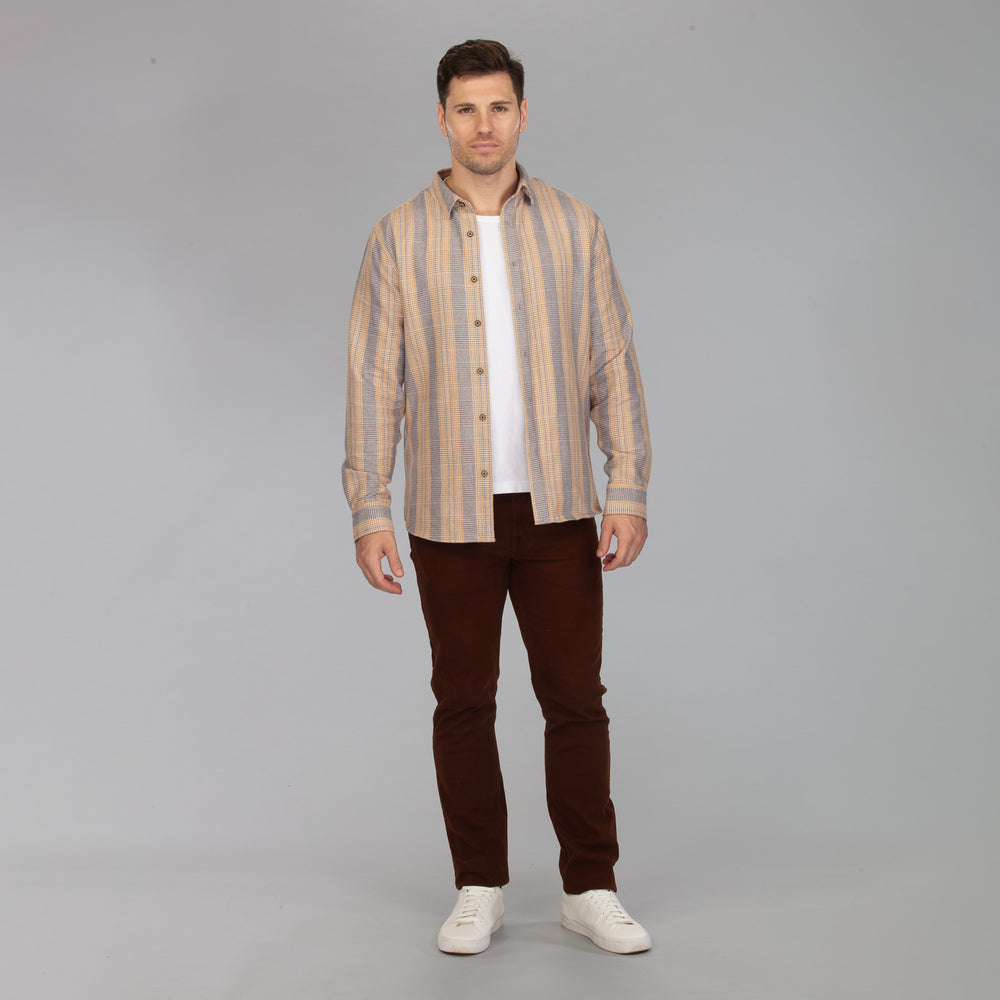Organic Linen: The Hidden Gem in Sustainable Menswear
Welcome to this journey of sustainable menswear. Today, we'll be exploring the exciting, often underappreciated world of organic linen - an extraordinary fabric that every eco-conscious man should consider incorporating into his wardrobe.
What is Organic Linen?
Organic linen is a phenomenal textile, birthed from the humble flax plant. What sets it apart from regular linen is its clean upbringing, free from harmful pesticides and fertilizers.
In addition, the way linen, cotton, and hemp (all natural cellulose fibers) are produced, through a mechanical process, distinguishes them from regenerated cellulose fibers like rayon, acetate, and cupro, which are produced chemically.
Fashionwise, it’s appeal is in the strength, breathability, and unique quality of growing softer with each wear. These traits make organic linen a real contender in the arena of sustainable menswear.
The Journey of Organic Linen: From Flax to Fabric
Growing and Harvesting Flax
Organic linen's journey starts with flax, a resilient plant that can grow in poor quality soil and requires significantly less water compared to cotton. Even better, sometimes it can actually help fix up soil that's been polluted. Plus, flax plants have high carbon absorption rates, which is also why even the ordinary linen is greener than synthetic fabrics.
The Linen Production Process
Once the flax is harvested it enters the retting stage, where natural decomposition helps separate the fiber from the stalk. Here, organic flax growers use two methods:
- Dew retting: This is as simple as leaving the flax stems in the field for a few weeks. Nature does the rest, breaking down the stems with the help of moisture.
- Water retting: This involves immersing the flax stems in water, be it a pond, river, or a tank of warmed water (which fast-tracks the process).
The resulting linen fiber is then spun into yarn and woven into fabric. Note that water retting can is comparatively more resource-intensive, especially when lots of heated water is used. On the other hand, dew retting is greener, as it doesn't need extra water, energy, or chemicals, and it even enriches the soil through natural decay.
The Environmental Impact of Organic Linen
Let's take a look at organic linen's environmental impact. A significant win for organic linen is its minimal water consumption. Did you know flax requires 60% less water than cotton to grow?
The production process of organic linen doesn't contribute to chemical pollution, as it avoids harmful substances. What's more, the entire flax plant is used, leaving no waste behind. Organic linen is a prime example of sustainable production at its best.
The Human Impact: Organic Linen and its Benefits
Organic linen isn't just eco-friendly; it's people-friendly too. Here's how:
- Worker Health: Organic practices mean safer conditions for those growing and processing the flax, due to the absence of toxic chemicals.
- Consumer Comfort: Breathable, highly absorbent, and hypoallergenic, linen is a boon for sensitive skin.
- Consumer Health: Free from chemical residues, organic linen clothing is a healthier choice for your skin and body.
The Economic Impact: Organic Linen in the Market
Economically speaking, organic linen presents a promising prospect.
- Cost of Production: Although organic linen requires more labor-intensive practices, the reduced reliance on costly chemicals balances it out.
- Market Value: With growing consumer awareness about sustainability, the demand for organic linen is on the rise, increasing its market value.
Why Choose Organic Linen Menswear?
To sum it up, organic linen is durable, comfortable, eco-friendly, and safe for both workers and consumers. From crop to shirt, organic linen is a solid investment that offers long-term returns, both economically and environmentally. For the modern man who values quality, comfort, and sustainability, organic linen is an ideal pick.
Ready to experience the difference? Head on over to Vustra’s online store and explore our range of menswear made with organic linen





